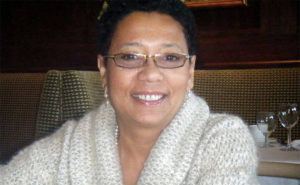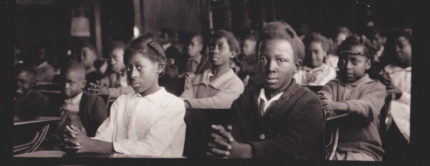
That’s what NPR’s Sam Sanders said. And whether it was hyperbole or a fact, the point was not compromised: Dori Maynard, 56, lived and breathed diversity in journalism to the moment of her death on Tuesday.
She endured a long battle with cancer; her fight for fair and balanced coverage and Black people in the nation’s newsrooms was much longer and surely taxing.
Maynard had one ultimate ambition: “We have to be able to tell stories that accurately and fairly reflect all of us,” she once said.
In that quest, she relentlessly pressured editors, mentored young African-American journalists, recommended jobs, trained journalists of all races and, since 2001, directed one of the finest training grounds for journalists, the Robert C. Maynard Institute for Journalism Education.
Yes, journalism ran through her veins. Her father, after which the institute was named, was the editor and publisher of The Oakland Tribune, and owed a controlling interest in the paper that held the distinction of being the country’s first Black-owned major metro daily until it was sold in the early 1990s.
Her dad’s influence was readily apparent. A soft-spoken woman, she still was determined and able to, year-after-year, stress to outlets and journalists that it was critical that the responsibility be met to provide nuanced coverage of communities that are often misrepresented by Caucasian media.
Maynard told NPR: “We sent some people once to a neighborhood that had a lot of immigrants in it. And we asked the reporters to ask community members, ‘How can people better cover you?’ And the community members said, ‘Well, you can stop looking at us from your middle-class point of view and stop calling us poor. You see two families living in one house and sharing a car, and so you think that’s poor. And we say, ‘We have a house. We have a car. We’re not poor.’”
Mainstream newspapers began hiring Black journalists out of necessity in the late 1960s, as African-Americans fumed over racial injustices and largely would not talk to white media.
“It was white journalists who reported on the civil rights movement (except for those reporters from the Black press),” Maynard recalled, “while it was mainly Black reporters who covered this other era—Black Power, Black consciousness, and the Black revolution. In fact, this became the only time that mainstream media put an important story entirely in the hands of Black reporters. That was a decision borne from necessity. With cries of ‘white reporter out,’ Black journalists were the only ones who were able to get the story.”
As NPR noted, Maynard helped start a program at the institute that pushed journalists to recognize blind spots in their coverage across five distinct areas—race, class, gender, generation and geography.
African-Americans still make up just 12 percent of reporters in the nation’s newsrooms, the clearest indication that Dori Maynard’s work must go on. It just will not be the same without her.

